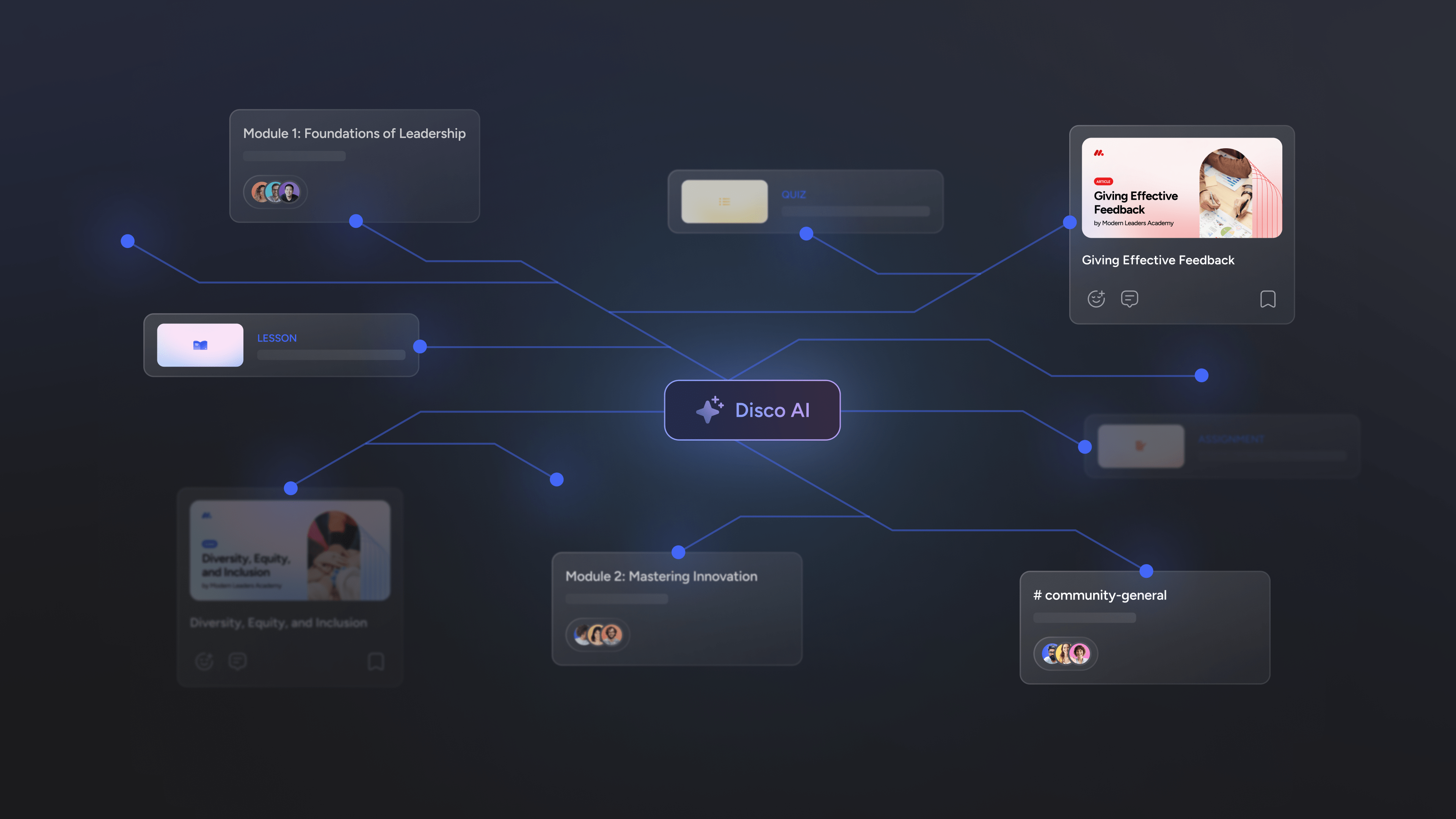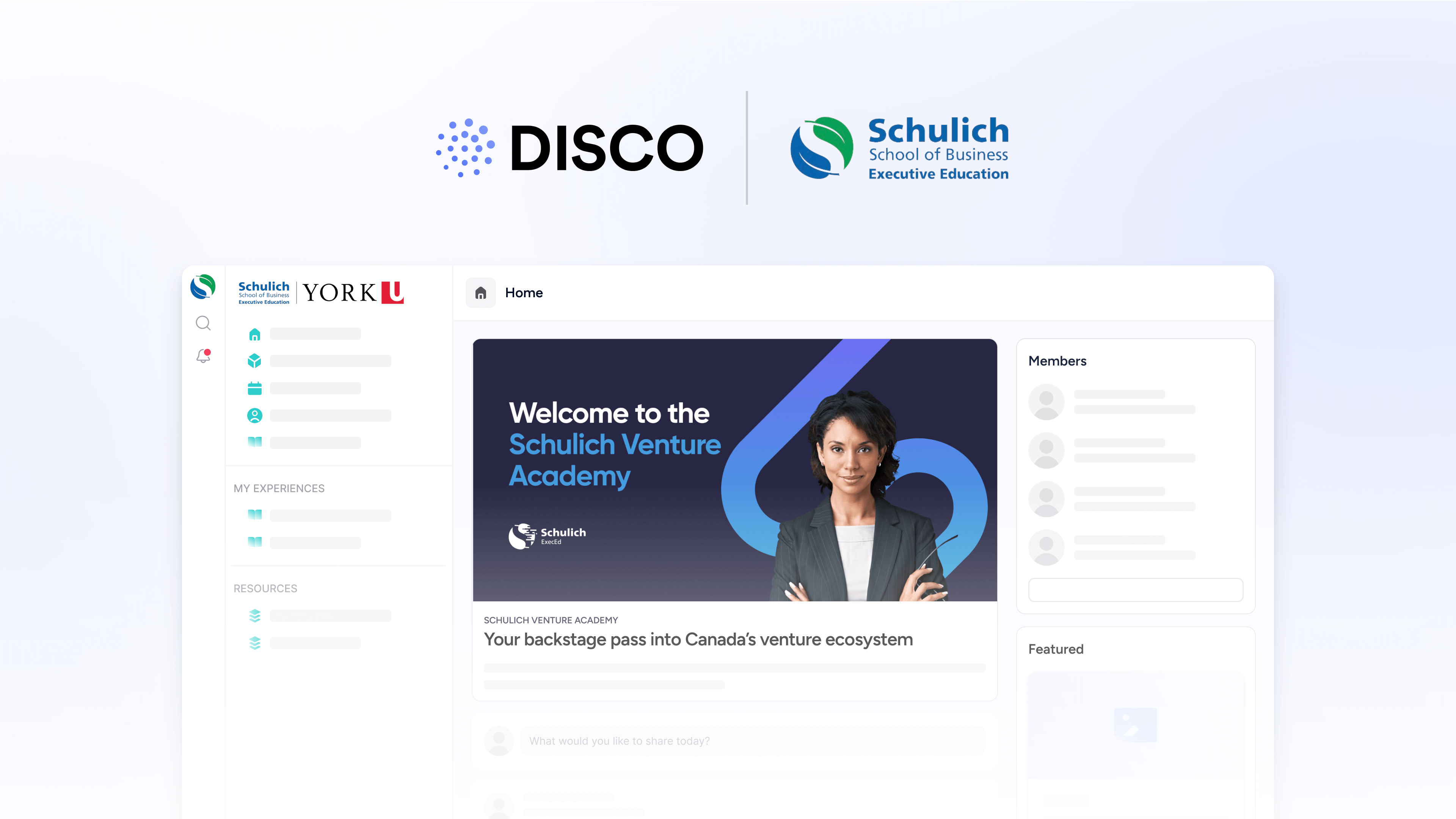On Deck's Success: Scaling an 8-Figure Learning Community
When Eliot Gattegno joined On Deck as the Head of Education, the organization was in its seed stage and ready to reimagine the future of education.
In just over two years, On Deck has become one of the most progressive and successful modern learning organizations in the world, in part, due to their design approach and business model which is rooted in the simple yet profound concept that learning is a lifelong journey.
On Deck’s experimental approach to learning design and community building has taken them from an IRL dinner series to an 8-figure online education empire with over 10K community members. As Head of Education, Eliot’s mission is to explore what a modern education organization can be and to collaboratively design and develop educational programs that contribute to the organization’s 100-year vision.
On Deck’s unwavering commitment to community building and constant experimentation has allowed them to build and grow with their community and to create live learning experiences that respond to the challenges, needs, and ever-evolving goals of their members. Their Founders Fellowship, an IRL experience—which transitioned to a 12-week program for founders shortly after the COVID-19 pandemic—is now in its 12th iteration and has inspired the creation of over 25 live learning experiences and communities at On Deck.
"We are at this point in time where we have the ability to empower massive portions of the population to be teachers. To share what they’re passionate about and knowledgeable about, and help other people in profound ways."

What Academies and Bootcamps can learn from On Deck's design, marketing, and community building strategies
Designing transformative live learning experiences start with your learner's goals
At On Deck, transformative learning design is built on the foundation of helping people achieve their short and long-term goals. Their approach is to offer time-bound courses that respond to the learner’s goals while prioritizing their needs and challenges.
Upon course completion, they include complementary experiences to encourage and cultivate space for reflection, as a way to build community and in hopes that the member will participate in another experience down the line. By putting the learner first, On Deck is able to design live learning experiences that meet the specific needs of their community.
“In short, On Deck is a goals company, we help ambitious people achieve their goals"
Transformative learning means everyone is a learner, everyone is a teacher
When it comes to transformative learning, On Deck doesn’t use a top-down approach, there is no expert or sage on the stage. Instead, On Deck creates experiences where learners and community members distill and test what they already know and share insights with one another. They have both supply and demand within their network, everyone is a student and a teacher, an approach that not only helps build a sense of empathy amongst members but also a thriving learning community.
Eliot believes that transformative learning happens when the focus is on learning design, not the format or how long it takes for a learner to achieve outcomes. There are many different tactics and tools that can be used in a variety of learning contexts, but what makes great learning is genuine interaction and connection. A golden rule to guide your learning design is to ensure that your learners are highly engaged throughout the experience, Eliot suggests creating space for interaction every 2.5-5 minutes.
“Value is not achieved in terms of time, value is achieved based on you helping people achieve the outcomes and goals that they’re hoping for.”
Growing a thriving learning community requires a plan
On Deck builds trust with their ideal learners by genuinely engaging and supporting them at every stage of their journey. Being in service to community lives at the heart of the organization and informs its marketing, learning design, and community building strategies. On Deck’s approach to marketing and growth has been to slowly, patiently, and authentically build a community from the ground up.
Eliot believes that one of the most important ingredients to building and growing a successful live learning empire is to have a plan, one that asks two key questions: How can we make our educational experiences and offerings about asking questions to ultimately understand our market, and, how can everything we do be a give?
“If you don't have a plan, everything you do looks like a success and everything you do looks like a failure, depending on where you're at. Come up with a growth plan, do the market research, and hold yourself accountable to that plan.”
Pay per experience versus membership model
On Deck’s initial strategy was to offer 4-8 week programs which were immensely successful in engaging and retaining participants. Over time, what became clear was that once programs were complete participants wanted more—around 75% of learners who took their offerings were active after the initial experience.
Based on these insights, and On Deck’s commitment to lifelong learning, they changed their learning business model from charging a one-time fee for each course to a one-year membership that could genuinely support members on their journey to achieve their long-term goals by offering them a variety of virtual and in-person experiences.
“This model enables us to have deeper and more diverse experiences, where we have things that are ultimately taking place online but we also have different events that we host in-person and a whole slew of offerings that we offer as part of the annual membership to people as we believe it's ultimately relevant to help them achieve their goals.”

Determining the lifetime value of your learner
When building and scaling your live learning empire, you may be wondering whether to offer pre-recorded courses, live courses, workshops, memberships, or all of the above. Eliot suggests focusing on what you’re hoping the lifetime value (LTV) of your learner will be and then testing out a variety of ways learners can access your offerings, such as single purchase options or multiple purchases over time. If your LTV is $1000, try offering a $1000 course as well as 10 $100 offerings to see what resonates and works well for your learner and your business.
“One of the greatest advantages of offering online learning is being able to test different offerings and value propositions to achieve the lifetime value that you’re hoping for.”
On Deck's KPI's Focus on attracting, engaging, and retaining ideal learners
On Deck takes a community and education first approach, what they prioritize above all else is developing experiences that genuinely attract, engage, and retain their ideal learners. Through constant research (surveys, focus groups, etc) and quarterly planning meetings, On Deck asks three questions to help determine and achieve their business goals:
- Are people attracted to the programs because of what the education offerings are?
- Are people staying and renewing their membership because they had a great experience from a learning point of view?
- Are members engaging throughout the 1-year membership in the various educational offerings?
These questions have helped On Deck consistently land at a 90% member satisfaction and success rate. Eliot shares that anything below 90% is often due to a lack of alignment. When it comes to retaining learners/members, it’s incredibly important to ensure that there is clear communication with learners around expectations and outcomes and that the experience itself delivers on its promise.

Referrals come from great products
When you focus on making a great product or service, marketing and advertising tend to take care of themselves. While On Deck has not used traditional marketing or referral practices in their business, they have seen organic referrals and have supported that growth by continuing to invest in their community.
For academies, bootcamps, and micro-schools who want to deliberately implement a referral strategy, Eliot suggests incorporating ways to generate awareness about your offering throughout the learning experience, not just at the end of the journey. Additionally, Eliot encourages founders to share their work publicly and with folks who may be a few steps ahead in order to build relationships, trade ideas, and collaborate on experiences that can increase awareness of their offerings.
What to keep in mind when it comes to operating and scaling your learning business
- Figure out what your secret sauce is and what you want to offer and then double down on these things. Experiment with frequency, when you’re offering your experience, and the learning dosage that you can offer on a regular basis, and then spend time testing back and forth in order to map out what is working for your population.
- Try to keep operational costs as low as possible. Save time by investing in a unified and integrated system for your business so you can spend less time coordinating between different platforms. This will not only help you operate and scale, but also provide a seamless experience for your learners.
- Eliminate the process of having folks learn to use new tools and software so your team and your learners can focus on what really matters: connecting, learning, and growing.
How Disco's all-in-one platform is making it easier for On Deck to operate and scale their learning business
"Running a program is incredibly operationally intensive. There are things that humans should be doing, they need to be teaching, they need to be engaging with the community, and giving support.
But there are also many parts of operating a program that humans don't necessarily need to be doing and could be done by a product. I think that's one of the things that's most exciting for us in launching the No Code Foundations through Disco.
With Disco there are so many parts that can now have a much more product guided and product-led experience than we were previously doing."
On Deck is building out their No Code Foundations program on Disco, a program that helps people break into tech, start companies, and raise funding.
One of the reasons why On Deck chose to build the No Code Foundations program on Disco is because they required an all-in-one platform that provided a more integrated and unified operating system. They needed a product that could decrease the number of different tools and apps they were using in order to save time and money and to create a seamless experience for their team and their learners.

Supercharge your community
The Learning Community Playbook delivers actionable insights, innovative frameworks, and valuable strategies to spark engagement, nurture growth, and foster deeper connections. Access this resource and start building a vibrant learning ecosystem today!










